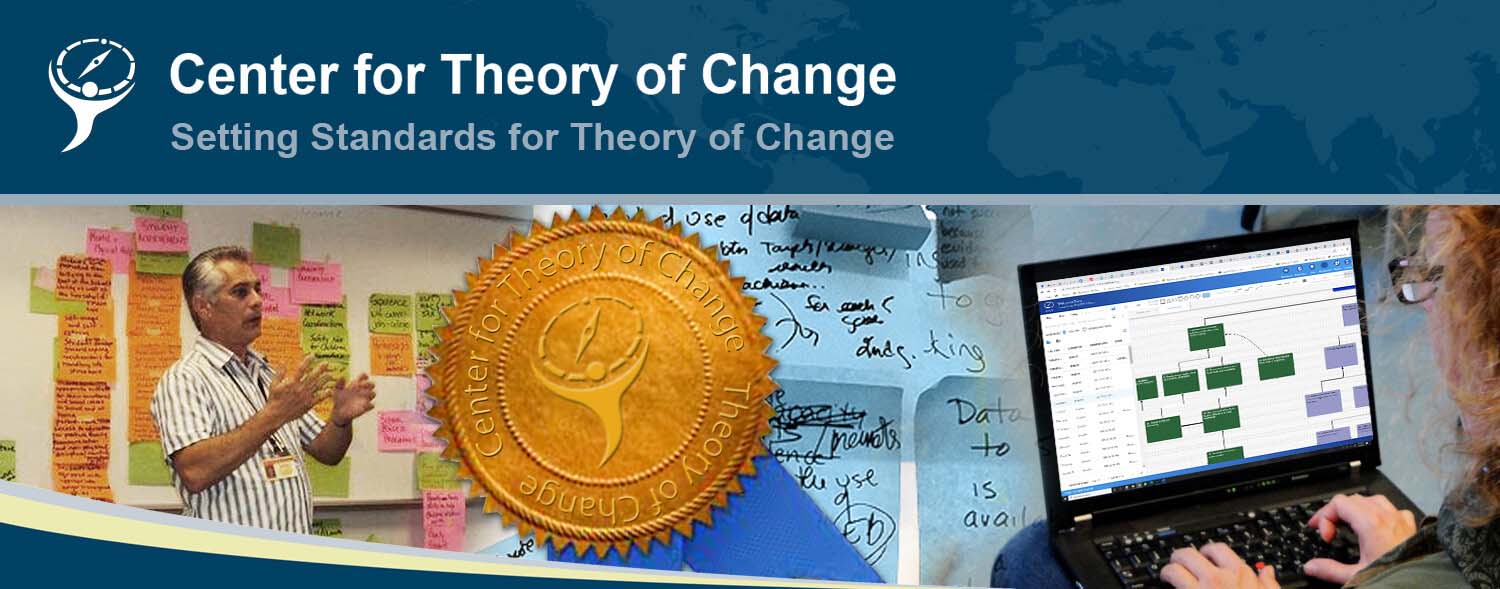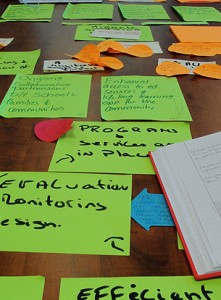Outcomes, results, impact: these terms have tremendous currency in today’s world. In health care, education, social services, and anti-poverty work, agencies are looking for ways to chart and measure the results of their work. Outcomes Research seeks a U.S. health care system that pays for results rather than services. In Higher Education, reformers like Lumina Foundation for Education are trying to steer the system toward learning outcomes and away from system inputs. That most traditional of charitable agencies, the United Way, is moving its 1,200 member chapters toward anticipating and measuring community impact in all their funding decisions. Internationally, the Millennium Development Goals would reduce hunger, disease, and poverty; and increase gender equality, health, education, and environmental balance. But how to get there? As Lewis Carroll once observed “If you don’t know where you are going, any road will take you there.” The keys to effectiveness are, one, turning general goals into specific, measurable outcomes, and, two, assessing strategy against outcomes.
Non-profit organizations want what the for-profit sector has long had, concrete feedback on results. Businesses get feedback all the time: products sell well or they do not; share prices go up or down. Social change agents may lack the built-in metrics of markets but they can do much more than just try hard and hope for the best. With Theory of Change, organizations have a way of thinking through just what results they expect to have and what it will take to get there. TOC helps get the business model very clear, but it also provides a blueprint for assessing and attributing results. Evaluators have excellent instruments and methods of evaluating program effectiveness, but to really tell the story they need to be able to align their methodologies to program goals. If the goals are fuzzy, evaluators can collect all the data you may want but will have a hard time feeding useful analysis back to the agency. Theory of Change provides the link: a well articulated theory tells evaluators what to look for and gives cause for attributing results to the effort.
President Obama talked about results and accountability in his inaugural address:
The question we ask today is … whether our government … works — whether it helps families find jobs at a decent wage, care they can afford, a retirement that is dignified. Where the answer is yes, we intend to move forward. Where the answer is no, programs will end. And those of us who manage the public’s dollars will be held to account, to spend wisely, reform bad habits, and do our business in the light of day.
In those words we see an emphasis on clear outcomes and on evaluating whether programs are effective in producing the outcomes they expect. Here on Theory of Change Community you will find valuable tools and resources for mapping outcomes, identifying indicators, bringing assumptions to the surface, and many other aspects of using and working with the Theory of Change approach to planning and evaluation.
- Theory of Change Online, or TOCO, is the first web-based Theory of Change tool. TOCO enables agencies to take charge of developing and maintaining their own theories as aids to forecasting, planning, choosing strategy, and learning from their work.
- A Library of materials, examples, case studies, and white papers.
- Blogs that take up different aspects of TOC.
- A member discussion forum for raising questions and sharing experience.
Welcome to Theory of Change Community!
Dana Taplin, Theory of Change Director & Evaluator
ActKnowledge

